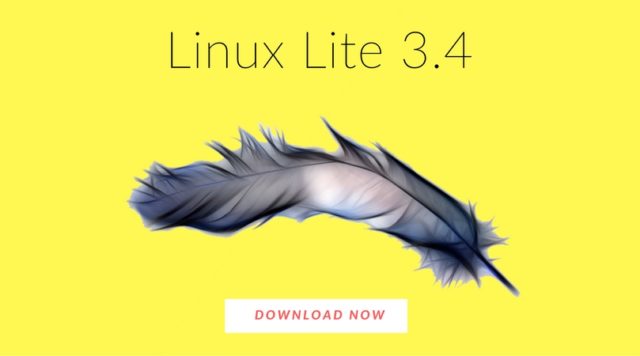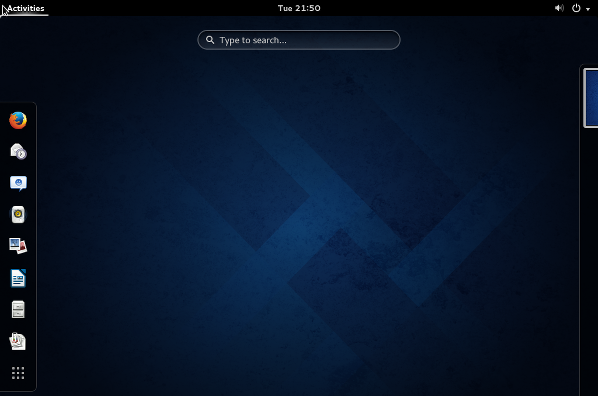Loading...
Developed ByCanonical Group Ltd (Version 17.10) – 25th of January, 2018. (100% Clean – Tested).
- Linux Operating System Download Iso
- Linux Operating System Download Torrent Software
- Linux Operating System Download Torrent Free
- Linux Operating System Download Torrent Download
Linux Download, download Linux Lite here for free. We rely on advertisements to exist as a free operating system. Download BitTorrent for Windows or Mac here.
Download Linux operating system ISO (32-bit, 64-bit) for PC, dual boot it along with Windows OS, and embrace the next generation gaming, browsing, data security, and office productivity by experiencing an improved performance in an unmatched ambiance.
Editor’s Note: For a system administrator, working on Linux OS will be an enormous breakthrough because there will be no more daily sluggish server. In fact, this OS can be called “set it and leave” as there is only one service on the server which needs re-configuring, restarting and upgrading, the rest of the server won’t be tampered with. Desktop or server, if the ZERO cost can’t win you over maybe, you should think to have an OS that works faster and perfectly for as long as you use it. Its security is a huge advantage over another operating system because the user won’t have issues with viruses, malware or random computer lag. Is it that stable? Yes, It is.WebForPC.Com discourages the reproduction, duplication, and distribution of copyrighted content.
Linux Operating System: Product’s Review:
| Technical Details |
|---|
| . Nomenclature:Ubuntu Desktop Edition. |
| . Genre: Operating Systems. |
| . Updated On: 25th Of January, 2018. |
| . Official: Ubuntu.Com. |
| . Version:Ubuntu 17.10 (Artful Aardvark). |
| . Compatibility: 32 & 64 Bit. |
| . Operating System: ……… |
| . License: Freeware. |
| . Setup Size: 883 MB &1.47 GB (64-Bit). |
Linux is everywhere! From smartphones to supercomputers, home appliances, cars and it’s been around for years (since the mid-90s) and has hit a user-base that sweeps companies, industries, and continents. Most of the supercomputer making gargantuan scientific success and the internet have Linux as the sky behind their stars. It always stands to be the most dependable, efficacious and secure operating system to improve user experience with their personal computers both at home and work. Just in case you are done up with windows lag and macOS is shallower, maybe is the high time you turn side to a savior called LINUX. It is quite just the crowning when talking about open source software. Which flavor is to be opted for is certainly a pertinent question, rather repaying on some enterprise edition which requires a certain level of dexterity, it’s better to rely on Ubuntu which is a hugely appreciated and most famous part of the Linux distributions over the years.
The Core components of Linux Operating System?
| PROS |
|---|
|
| CONS |
|
Applications:Linux surpasses other OS being a home for thousands of handy software that can be easily installed depending on the type of task you want to execute.
Bootloader: This the magic wand behind the boot process of your computer.
Daemons: This is the big guy behind the background services that kick off during boot or after you dive into your desktop.
Graphical Server: The powerful sub-system which shows the graphics on your screen and it is either called the “X” or X server.
Kernel: This seems to be the powerhouse of the system as it handles the memory, CPU, and other devices.
Desktop Environment: The piece of the riddle that the users interact with is the desktop environment, and the available ones include GNOME 3, Unity, KDE Plasma 5, Cinnamon, etc.
The Shell: This is a command process that enables the user to control the computer through commands put into a text field.
Screenshots:
Take a minute to know Linux OS Distributions:
- Debian
This is also referred to as Debian Linux/GNU because most of the primary OS tools come from the GNU Project. Even some other popular distributions are grounded on Debian, including Knoppix, distro Ubuntu, Linspire, etc.
- Fedora
Red Hat backs fedora and just in case you are interested in testing with the prominent technologies, Fedora is the perfect pick because the release cycle is very short and it has the habit of including the latest technology packages/software in its distribution.
- CentOS
To optimize the little resources your organization/company has and at the same time still relish all the benefit of the red-hat distribution, CentOS is the way out because is wholly grounded in Red-Hat enterprise Linux.
- Red-Hat
This is apparently for an organization that is buoyant enough to spend some dollars on getting the red-hat support and is a perfect choice for a team that runs mission-critical software.
- Ubuntu
For a vast number of the user, Ubuntu is there ducky Linus operating system distribution because it can be used both at home and work. Well, this is actually cushy to use, and it’s geared toward newbies and not the experienced users. The following three editions are available on Ubuntu; Server Edition, Desktop Edition and Notebook Remix
- Others are Arc Linux, SUSE, Deepin and Linux Mint.
Each of this Linux distribution has a different take on the desktop, some cop out for very contemporary user interfaces (such as Ubuntu’s Unity, Fedora, Debian and Deepin’s Desktop), and whereas others wedge with a more old-fashioned desktop environment, i.e., SUSE which utilizes KDE
Let’s take a glimpse of the essential contours of this dandy OS:
- Live USB/CD
Nearly all the distribution of Linux operating system has Live USB/CD feature to help user test the OS before opting for it.
- Graphical user interface (X Window System)
It is true that Linus is a command line operating system but not a complete truth because Linux has suites which user can install to give the OS a graphical look like Windows.
- National keyboards Support
The keyboard can be tailor-made to suit your language alphabet; it is used worldwide, so it is available in multiple languages.
- Software Support
Linux has its own application storehouse where users have entrée to thousands of application that they can easily download and install just by putting in command in Linux Shell or Terminal and interestingly, it can run Windows applications too (so you can still relish your ducky apps if you are dropping Windows for Linux).

- Portability
This is one of the main lineaments that put Linux on the front page, not in the form of smaller in file size or being able to be placed on a flash drive, memory cards or CDs. Portability here implies that Linux and its application can run on different types of hardware.

Download Linux Operating System For Desktop (PC):
Download the latest of the Linux flavor “Ubuntu Desktop Edition” for both 32 and 64-bit system architectures. Choose the appropriate option below and proceed with the download.
32-Bit
Section Navigation
- Release Information
- Production Release:
12.0 - Production Release:
11.2
- Production Release:
- Snapshot Releases
- Upcoming Release:
11.3 - Upcoming Release:
12.1
- Upcoming Release:
Choosing an Architecture
Most users of FreeBSD will have hardware for either the amd64, i386, or armv6 architectures.
Modern PCs use the amd64 architecture, including those with Intel® branded processors. Computers with more than 3 GB of memory should use amd64. If the computer is an older, 32-bit only model, use i386. For embedded devices and single-board computers (SBC) such as the Raspberry Pi, Beagle Bone Black, Panda Board, and Zed Board, use the armv6 SD card image which supports ARMv6 and ARMv7 processors.
All other users should reference the complete list of supported FreeBSD platforms.
Choosing an Image
The FreeBSD installer can be downloaded in a number of different formats including CD (disc1), DVD (dvd1), and Network Install (bootonly) sized ISO Disc Images, as well as regular and mini USB memory stick images. Recent versions of FreeBSD are also offered as prebuilt expandable Virtual Machine images, and as SD Card images for embedded platforms.
FreeBSD Deployment Statistics
While FreeBSD does not gather deployment statistics, having statistical information available is essential. Please consider installing the sysutils/bsdstats package, which collects hardware and software statistics, helping developers understand how to best focus their efforts. The information collected is available at the bsdstats.org website.
| Installer Images | Virtual Machine Images | SD Card Images | Documentation |
|---|---|---|---|
|
| Installer Images | Virtual Machine Images | SD Card Images | Documentation |
|---|---|---|---|
|
Our developers and release engineers are working on the next release of FreeBSD; if you wish to help with testing, please download the latest build. Please note that these images are, by their very nature, intended for testing and should not be used in production environments.
| Installer Images | Virtual Machine Images | SD Card Images | Documentation |
|---|
If you are interested in a purely experimental snapshot release of FreeBSD-CURRENT (AKA 13.0-CURRENT), aimed at developers and bleeding-edge testers only, then please see the FreeBSD Snapshot Releases page. For more information about past, present and future releases in general, please visit the release information page.
| Installer Images | Virtual Machine Images | SD Card Images | Documentation |
|---|
| Installer Images | Virtual Machine Images | SD Card Images | Documentation |
|---|
If you plan on getting FreeBSD via HTTP or FTP, please check the listing of mirror sites in the Handbook to see if there is a site closer to you.
Linux Operating System Download Iso
Install FreeBSD
There are many options for installing FreeBSD, including installation from CD-ROM, DVD, USB Memory Stick or even directly using anonymous FTP, HTTP, or NFS. Please read through the FreeBSD installation guide before downloading the entire FreeBSD distribution.
Purchase FreeBSD Media
FreeBSD can be acquired on CD-ROM or DVD from FreeBSD Mall, or one of the other CD-ROM and DVD Publishers.
Past Releases
For downloading past releases, please visit the FTP archive.
FreeBSD-derived Operating System Distributions
FreeBSD is widely used as a building block for other commercial and open-source operating systems. The projects below are widely used and of particular interest to FreeBSD users.
FreeNAS is an open source storage platform based on FreeBSD and supports sharing across Windows, Apple, and UNIX-like systems.
TrueOS (formerly PC-BSD) is a FreeBSD derivative with a graphical installer. The desktop option installs The Lumina Desktop Environment, a fully BSD Licensed desktop, with impressive desktop tools aimed at ease of use for the casual computer user.
pfSense is a FreeBSD based customized distribution tailored for use as a firewall and router.
Applications and Utility Software
The Ports Collection
Linux Operating System Download Torrent Software
The FreeBSD Ports Collection is a diverse collection of utility and application software that has been ported to FreeBSD.
See Installing Applications: Packages and Ports in the Handbook.
Linux Operating System Download Torrent Free
For information about how you can contribute your favorite piece of software to the Ports Collection, have a look at The Porter's Handbook and the article Contributing to FreeBSD.